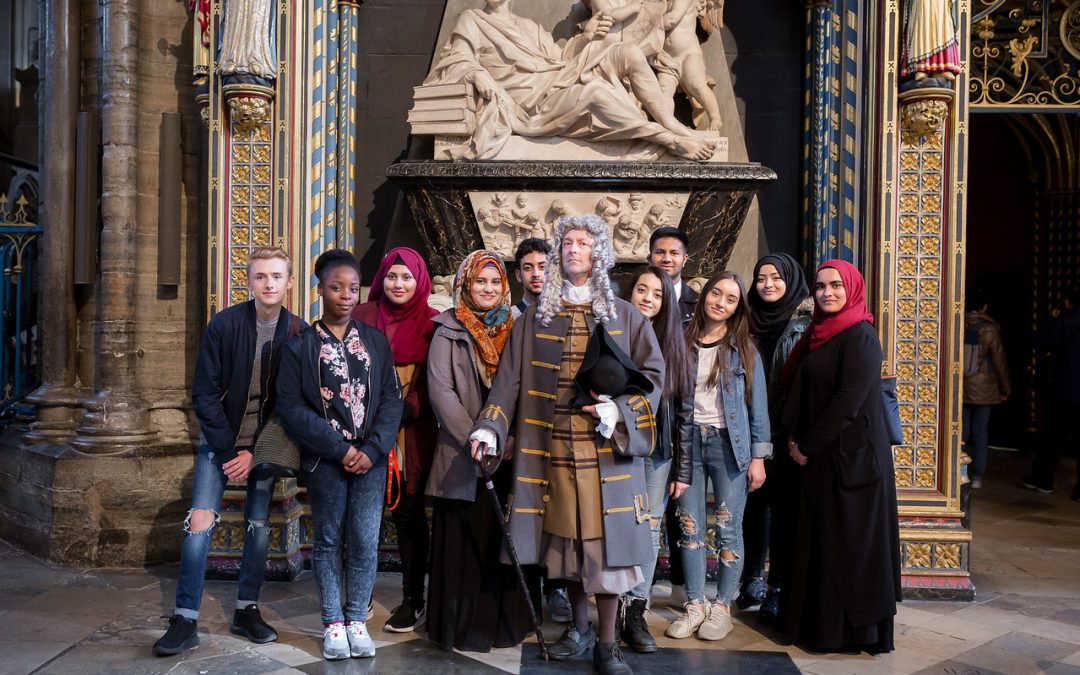Written by Sherralyn Simpson
Within the historic walls of Westminster Abbey, the LASAR team held a secondary school Epistemic Insight event focusing on Science, Religion and Big questions. A range of exciting and thought-provoking workshops were delivered; presenting complex ideas and Big questions which were responded to with vigour and enthusiasm by Year 9, 10 and 11 students from a range of schools.
Finley Lawson posed the question ‘How do we know what we know?’; reflecting on the place of reductionism in relation to big questions about life and nature through scientific and philosophical investigations. Whereas ‘Can a robot be responsible for making a mistake?’, a question which could shape our future, was asked by Dr Mehdi Nassaji; applied to simple and more complex robot exhibits to ponder the notion of ‘electronic personhood’. Dr Lee Hazeldine and Perry Enever examined the question ‘All we need is Science or is it?’ exploring aspects of identity and our sense of being in the world, through a range of disciplines. An investigation by Dr Mark Windsor, revealed the power and limitations of science to express how Art is viewed, evaluated and valued; in conjunction with the dialogue of history. Advances in genetics and how this could affect our children’s health were considered by Dr John Bryant which linked to the emotive case study of ‘Saviour Siblings’ where attendees were asked to discuss their moral and ethical stance on the recent changes in English law to allow embryonic selection for purposes of saving a child’s life; sensitively presented by Professor Berry Billingsley.
Overall, the day brought forth vibrant discussion and lively debate; which culminated in students having the opportunity to raise questions with presenters through an active and exciting Q & A session. Capturing the nature of science in real world contexts and multidisciplinary arenas (an objective of the Epistemic Insight Curriculum Framework), set within the backdrop of a strong historic and knowledge seeking setting.

